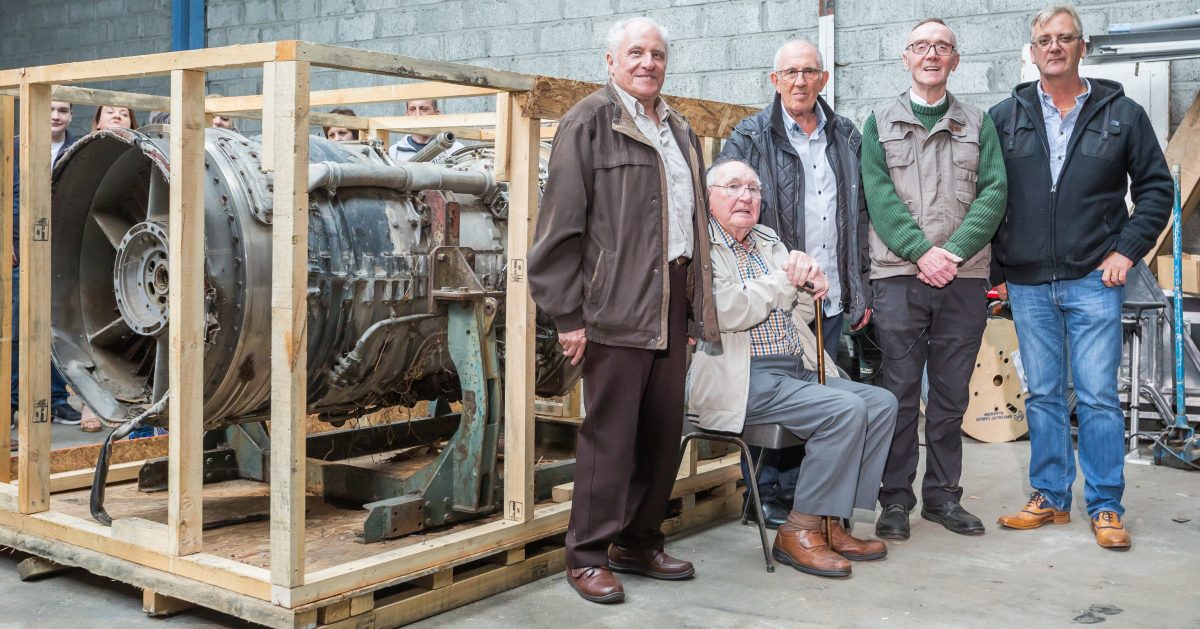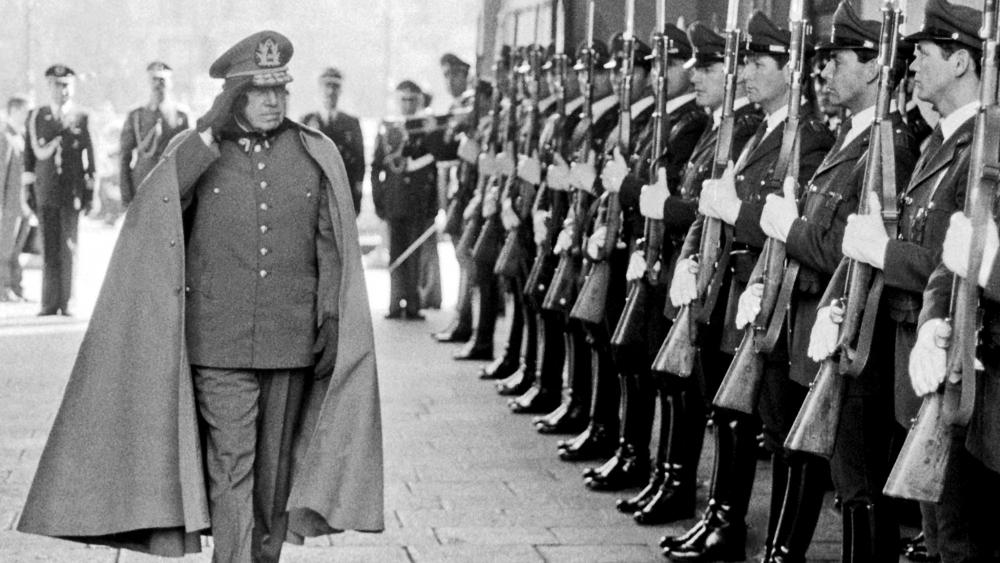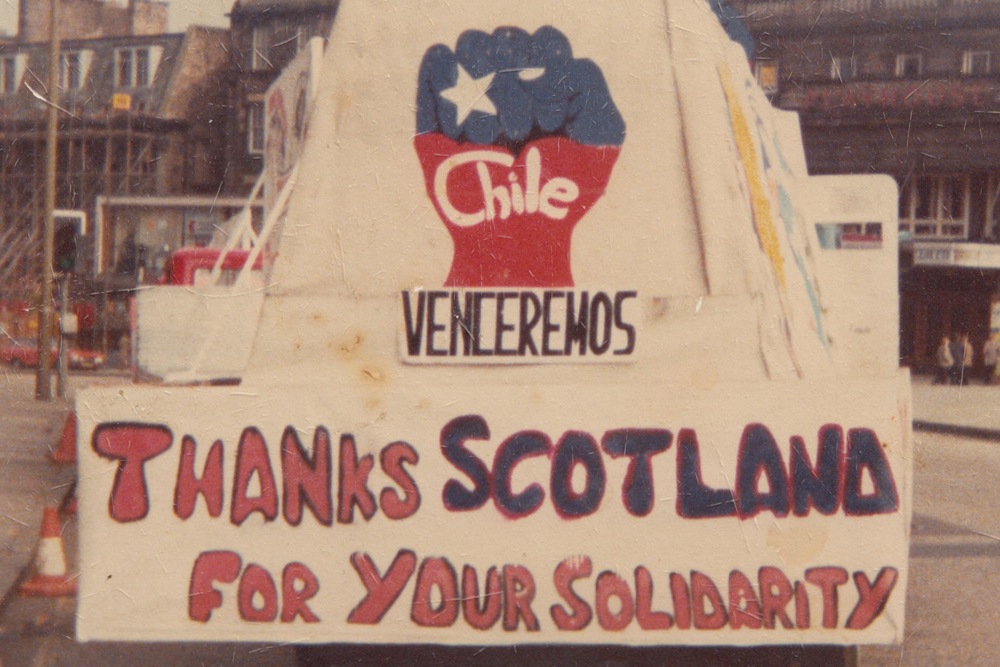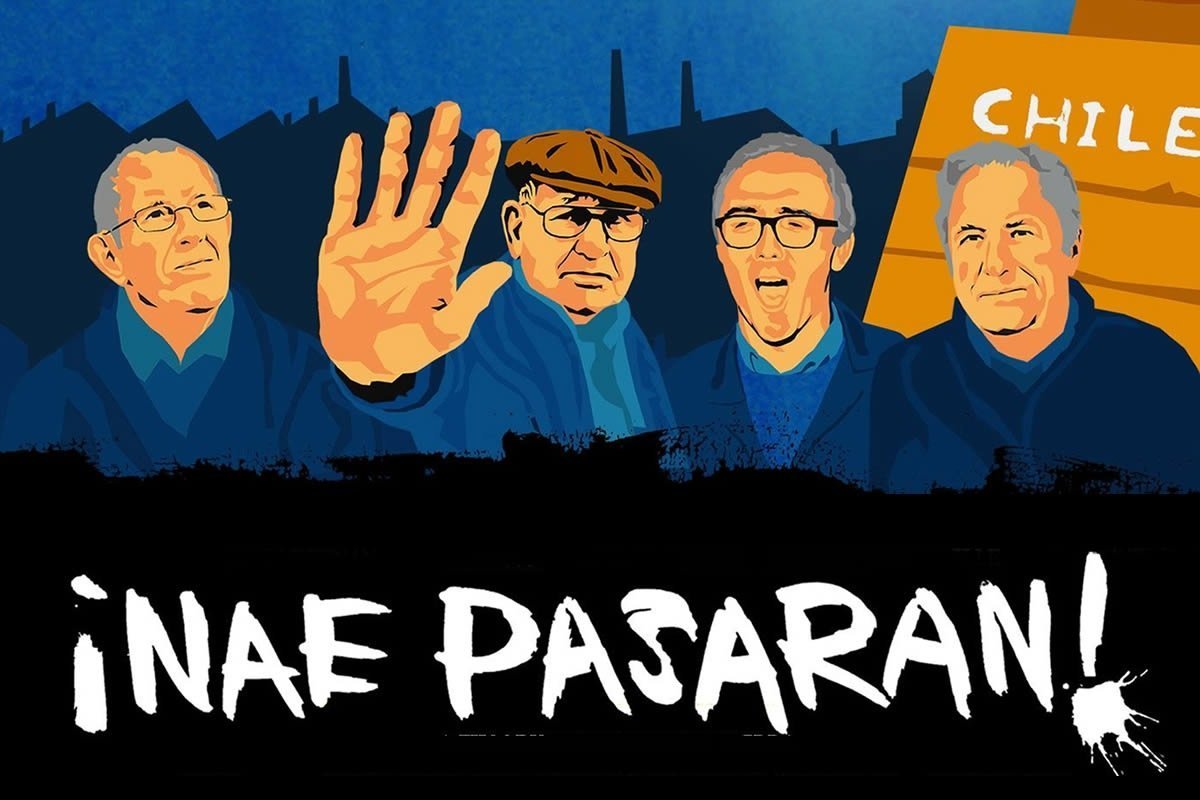A new documentary sheds light on an incredible true tale of international solidarity, demonstrating the potential power of the organised working class. This provides valuable lessons for the labour movement today.
Last week, on Thursday 13th December, various left-wing organisations and solidarity groups – such as London Young Labour and Lesbians and Gays Support the Migrants – hosted a special screening of Nae Pasaran at the Genesis independent cinema in east London.
This award-winning documentary by Felipe Bustos Sierra follows the inspiring true events of workers at the Rolls-Royce factory in East Kilbride, Scotland, who helped to land a blow against the dictatorial Pinochet regime in Chile through their internationalist instincts and actions.
Reuniting these workers decades later over a few pints, the director helps to unearth an incredible story of workers’ solidarity and the real, significant impact it can have on international events.
Boycott
Sierra, himself the son of a Chilean exile, focuses his attention on a small group of former Rolls-Royce engineers, who were responsible at the time for maintaining and repairing the engines of various military fighter planes.
The documentary reenacts how one day in 1974, Bob Fulton, a WWII veteran, runs onto the shop floor and shuts down work after discovering that engines belonging to the Pinochet junta have been brought in for repair. He has soon ‘blacked’ the offending parts, encouraging his fellow workers and shop stewards to down tools.
Notably, whilst all the East Kilbride Rolls-Royce workers were supportive of Bob’s stance, the trade union leaders (of the Amalgamated Engineering Union) back in London were less sympathetic.
Unable to call an official strike, the only way the Scottish workers could maintain a boycott on the Chilean Hawker Hunter airplane engines was by convincing local transport workers not to move the heavy parts. As a result, the engines were successfully sabotaged, left to rust in the factory parking lot.

Coup
Back in Chile, the Rolls-Royce workers’ actions made their mark. The East Kilbride factory was the only place in the world at the time where these engines could be repaired. Pinochet’s jets were therefore grounded, including – unbeknownst to Bob and the other trade unionists at the time – the very plane that had been used to bomb the Chilean presidential palace in the infamous of coup of 11th September 1973.
Sierra uses the Scottish workers story as a springboard to discuss the horrors of the Pinochet regime. Interviewing various Chilean political exiles, the director explains how the coup d’état came about: from the economic disruption implemented by the capitalists against the left-wing government of Salvador Allende; to the actual putsch of 9/11; to the subsequent imprisonment and torture of activists and individuals in the army who opposed the reactionary generals.
A huge international campaign against the Chilean junta was launched by the labour movement in response. Ministers in the Labour government of the time recall how their attempts to offer exile to Chilean political prisoners were thwarted by MI6 and other nefarious state officials who were working hand-in-glove with the CIA – who, in turn, were backing Pinochet’s dictatorship.

Impact
The East Kilbride workers’ boycott became a cause célèbre on the left. And their solidarity actions had an impact – one far beyond what the workers themselves were even aware of.
Exploring the case further, the film’s director uncovers evidence suggesting that the ‘blacked’ jet engines were eventually used as a bargaining chip between the British government and the Chilean junta.
One day, the Rolls-Royce workers discover that the rusting engines have mysteriously disappeared from their resting place, taken away in the middle of the night. Amongst others, a high-ranking former Chilean military official interviewed by Sierra hints that these may have been stolen by the UK secret service, returned to the Pinochet regime in exchange for the release of several political prisoners.
Speaking to Sierra years later, these Chilean exiles emotionally discuss how grateful they are to the Scottish workers for their solidarity. In turn, Bob and friends are shown these recorded statements of sincere gratitude. Their responses summarise the real attitude of the working class on the question of internationalism. No thanks are needed, the trade unionists assert. Their Chilean comrades would have done the same if the situation was reversed. An injury to one is an injury to all.
In the end, the impact of the Rolls-Royce workers’ boycott – although poignant – was limited. Without the force of the whole of labour movement behind it, such international solidarity could only ever go so far. Despite opposition abroad, Pinochet remained in power until 1990, repressing left-wingers and implementing the anti-working class economic programme dreamt up by the neoliberal ‘Chicago Boys’.
Lessons
 Nae Pasaran (a Scottish-inspired pun on the famous anti-fascist slogan: they shall not pass) therefore raises important lessons for today.
Nae Pasaran (a Scottish-inspired pun on the famous anti-fascist slogan: they shall not pass) therefore raises important lessons for today.
Firstly, the film highlights the potential power of the organised working class. If the actions of just a handful of workers could have an influence on events on the other side of the world, think of what could be possible if the entire weight of the labour movement was utilised in defence of workers internationally.
In turn, this raises the importance of fighting leadership. Bob and his comrades were let down by the union leaders at the time, who turned their backs on their Chilean brothers and sisters. Today, the leaders of the big unions are – all too often – similarly narrow in their outlook. In place of hesitation and parochialism, we need militant unions armed with a bold socialist and internationalist perspective.
Across the world today, reactionary regimes – backed by western imperialism – continue to wreak havoc on the working class. In Yemen, millions have been murdered and starved to death by the brutal Saudi monarchs, all with the support of British imperialism, which continues to sell bombs to these barbaric rulers.
If they wanted to, major trade unions such as Unite could play a key role in ending such wars, organising a mass arms boycott amongst their members in the ‘defence’ industry.
This should be linked to the fight for a socialist Labour government: to kick out the Tories; end the cosy relationship with monstrous regimes like that in Saudi Arabia; and provide a beacon of hope to workers everywhere by offering a revolutionary alternative to capitalism’s horror-without-end of war and austerity.
Nae Pasaran is showing in cinemas across the country. Visit the film’s website for a list of upcoming screenings.






